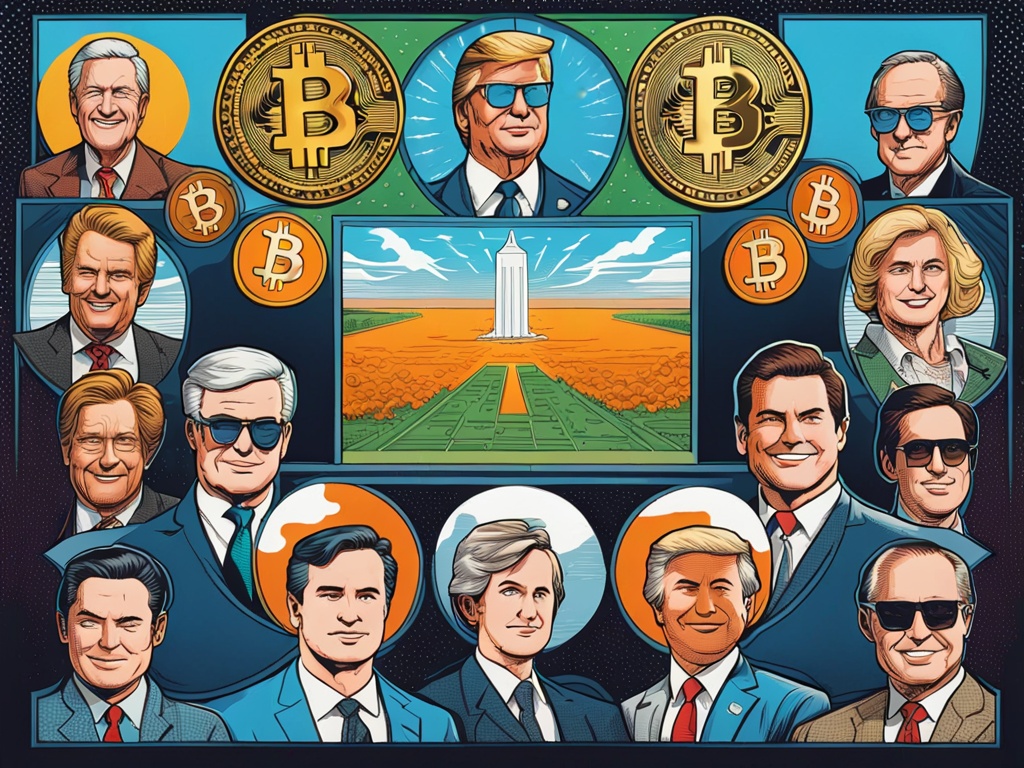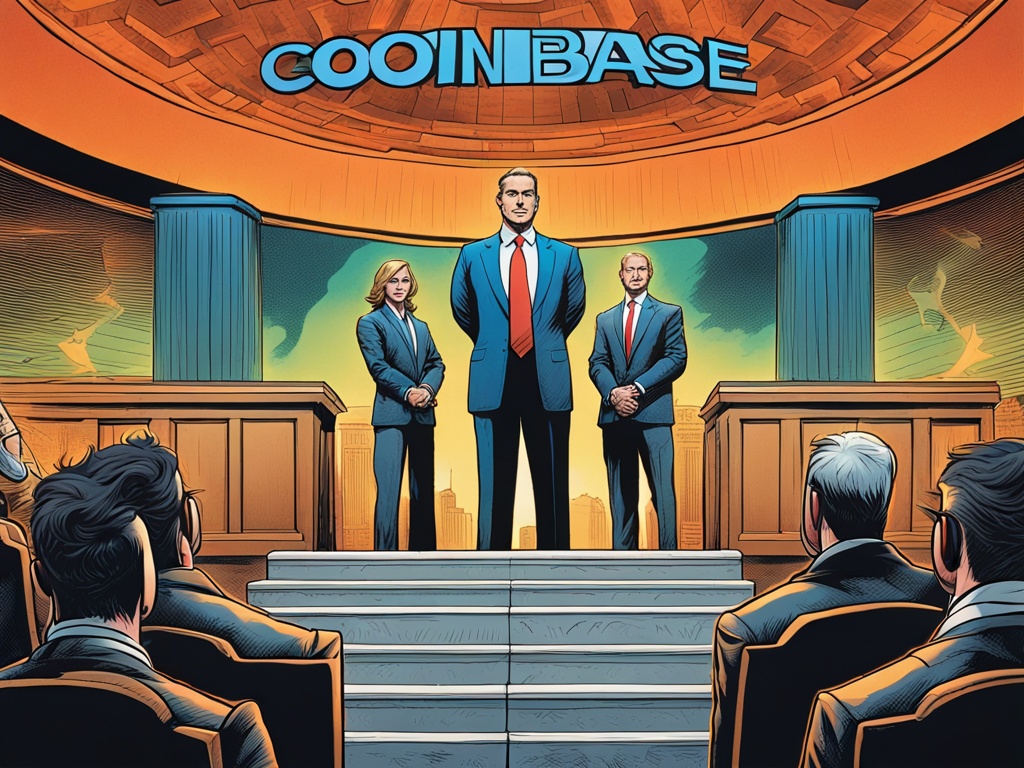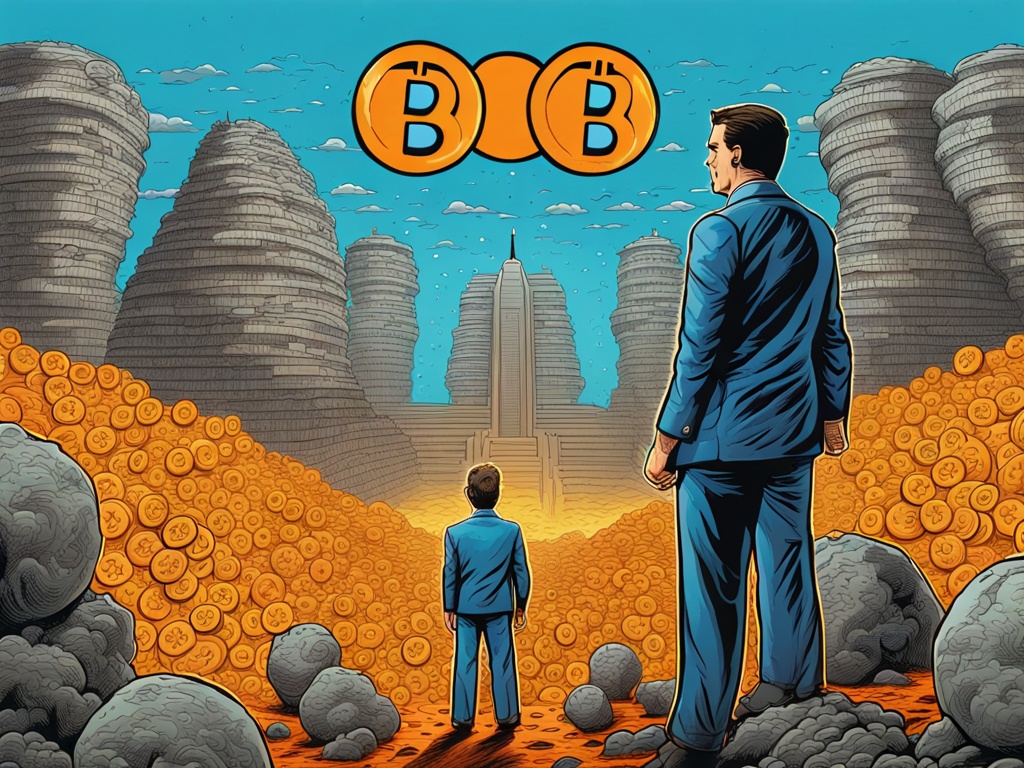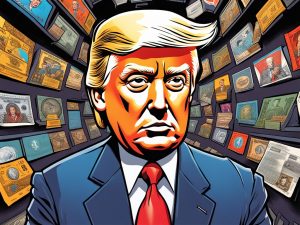Exploring the Shifting Attitudes Towards Cryptocurrency Among Republicans and Democrats 📊
A recent study from the University of Pennsylvania has drawn attention to the prominent interest in cryptocurrency among Republican voters compared to their Democratic counterparts. The findings suggest intriguing trends in the political landscape, demonstrating how cryptocurrency resonates differently with various political ideologies.
Republican Enthusiasm for Cryptocurrency: A Cultural Connection 💼
The study indicates that a notable 41% of Republicans reported ownership of cryptocurrency, in contrast to 32% of Democrats. This gap in ownership can be attributed to what researchers describe as a cultural alignment with conservative values that emphasize independence and skepticism toward government oversight. The study surveyed over 22,000 individuals and revealed a pronounced confidence among Republican respondents regarding cryptocurrencies, especially in regions such as the Southeast, where states like Texas are leaders in cryptocurrency adoption. In contrast, interest appears considerably lower in regions like the Northeast and Pacific Northwest.
Cultural Values Driving Adoption of Digital Assets 🔍
David Reibstein, a professor at the Wharton School, pointed out that Republicans are drawn to cryptocurrencies for their decentralized characteristics. This feature resonates with their beliefs in limited government intervention and the importance of individual control over financial resources. The underlying technology, known as blockchain, facilitates these transactions without centralized authorities, aligning with the libertarian principles cherished by many conservatives.
Demographic data unveils that Millennials aged 25 to 44 show the highest propensity to invest in cryptocurrencies, with Generation X and younger baby boomers following suit. On the contrary, older generations tend to be less involved, often due to distrust in digital currencies or a lack of disposable income to invest. Gender disparities are evident as well, with men reported to be twice as likely as women to own cryptocurrencies.
Political Figures and Cryptocurrency: A Changing Narrative 📈
Former President Donald Trump’s evolving stance on digital currencies mirrors the growing acceptance of cryptocurrencies within Republican circles. Initially, Trump expressed skepticism towards cryptocurrencies; however, his position shifted as he embraced the potential of making the United States a leader in the digital asset sector. Following the recent election, the number of Republicans with investments in cryptocurrencies has significantly surged.
Additionally, the Republican Party has indicated its intent to advocate for cryptocurrency rights in its 2024 platform, pledging to protect initiatives like bitcoin mining, self-custody of digital assets, and the right to transact free from government surveillance. Jim Harper, a known policy expert, characterizes the current conservative attitude towards cryptocurrencies as “anti-establishment.” He likens the contemporary Republican approach to support for cryptocurrencies to historical counterculture movements that resisted authority.
The Public Perception of Cryptocurrency: An Investment or Currency? 💰
The research also evaluated how Americans perceive cryptocurrencies: Are they viewed primarily as an investment avenue or as an everyday currency? Despite the growing number of crypto ATMs—over 38,000 nationwide—there remains significant skepticism surrounding their use. The survey revealed that while 54% of participants are comfortable utilizing cryptocurrencies for online transactions, only a mere 7% expressed willingness to accept cryptocurrencies as salary payment.
Regulatory Landscape and Future Developments 🏛️
As the cryptocurrency landscape continues to evolve, the Republican Party’s focus on a structured market for digital assets is set to take center stage. Representative French Hill has announced plans for a comprehensive crypto market structure bill aimed for introduction within the first 100 days of the upcoming legislative session. Hill emphasized the urgent need for regulatory clarity in the U.S. crypto market, which he described as a priority for the GOP. The proposed legislation, led by GOP Majority Leader Steve Scalise, seeks to establish explicit guidelines governing the crypto industry.
Moreover, John Deaton, a prominent advocate for cryptocurrency and a former U.S. prosecutor, has suggested an investigation led by a potential Trump administration into speculated initiatives that could undermine cryptocurrency access for traditional banking systems, an effort dubbed “Operation Chokepoint 2.0.”
Hot Take: Navigating The Complex Crypto Ocean 🚀
This year, the diverging attitudes towards cryptocurrency between political parties highlight significant cultural and ideological divides. The Republican party’s growing acceptance and advocacy for digital assets, contrasted with the Democrats’ more traditional financial alignment, opens intriguing possibilities for the future of cryptocurrency in American society. This changing tide may not only shape the political landscape but also revolutionize financial systems long dominated by conventional banking institutions. The engagement of both parties with cryptocurrency will undoubtedly create a dynamic environment as the legislative frameworks evolve.
For additional information on this intriguing topic, consider examining public opinion shifts or detailed analyses of state-specific cryptocurrency regulations and initiatives.





 By
By
 By
By
 By
By
 By
By
 By
By
 By
By